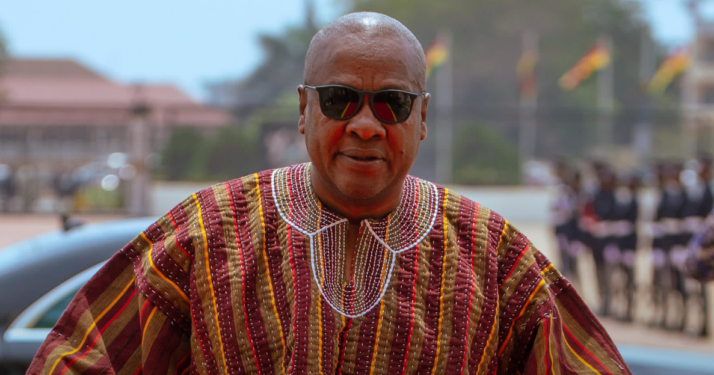In his much-anticipated State of the Nation Address (SONA2025), President John Dramani Mahama presented an ambitious roadmap to address the challenges facing Ghana. With a focus on improving governance, driving economic reforms, and prioritising self-sufficiency, Mahama’s vision aims to chart a path to a stronger, more resilient Ghana.
Here are the six key policies Mahama outlined during his address:
1. Lean Government for Efficiency
President Mahama plans to reduce the number of ministers to no more than 60, recognising that Ghana’s government has grown too large and expensive. By streamlining operations and cutting unnecessary spending, Mahama aims to create a more efficient and cost-effective government. This proposal is expected to minimise duplication of roles, maximise resources, and bring greater accountability to the country’s leadership.
2. Combating Corruption: Transparency and Accountability
A major priority in Mahama’s speech was the fight against corruption. He vowed to ensure that all public officials, regardless of rank, are held accountable for their actions. The president committed to legal action against corrupt officials, promising a transparent government that works for the people. This will help rebuild trust in the public sector, which has been undermined by corruption in the past.
3. Tax Reforms to Strengthen the Economy
Mahama recognised the challenges in Ghana’s current tax system and laid out plans for comprehensive reforms. By expanding the tax base and including more businesses and individuals, the president aims to increase government revenue. Additionally, Mahama proposed reforming tax waivers to avoid unnecessary revenue loss and ensure a fairer, more sustainable taxation system. These efforts will strengthen Ghana’s economic independence.
4. Austerity and Waste Reduction
In line with his economic vision, Mahama stressed the need for austerity measures to address Ghana’s mounting debt and fiscal challenges. He plans to cut wasteful government expenditure, focusing on reducing inefficiencies within the public sector. By maintaining fiscal discipline and controlling spending, Mahama hopes to stabilise the country’s finances and reduce its reliance on external financial support.
5. Boosting Local Food Production: Reducing Imports
One of the most striking aspects of Mahama’s address was his commitment to reducing Ghana’s reliance on food imports. The president emphasised that Ghana has the capacity to grow most of its staple foods. To support this, Mahama’s government plans to provide subsidies, improve irrigation systems, and implement policies to boost local agricultural production. This will ensure food security and decrease Ghana’s dependency on foreign imports.
6. Economic Self-Reliance: Building a Stronger Future
A key feature of Mahama’s strategy is the push for economic self-reliance. By focusing on homegrown solutions and reducing dependency on foreign aid and IMF programs, Mahama aims to create a more self-sufficient economy. This approach will involve increasing local production and improving economic resilience, reducing vulnerability to external shocks.
President Mahama’s #SONA2025 address provided a clear blueprint for reform and progress in Ghana. From reducing government waste to strengthening governance and fostering economic independence, his vision promises a brighter future for Ghana. The success of these reforms will depend on their effective implementation in the months ahead. As Ghanaians look toward the future, these policies could pave the way for a more prosperous, self-sufficient nation.

